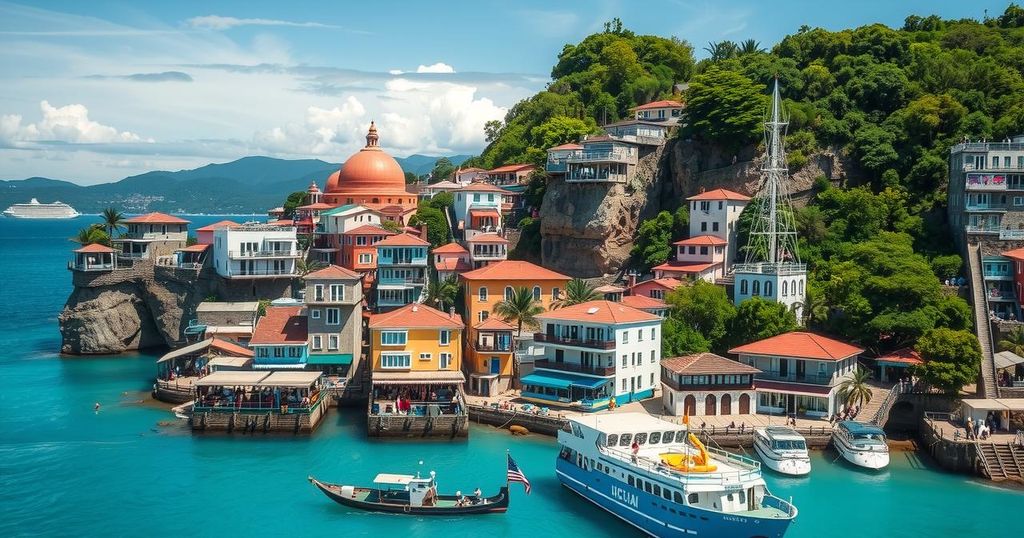In 2024, El Salvador’s tourism surged by 22%, driven by bitcoin adoption and safety reforms. The Santander report cites 3.9 million tourist arrivals and highlights the record contributions of tourism to the GDP, notably from U.S. visitors attracted by bitcoin transactions. Improvements in safety further underscore the country’s appeal as a travel destination.
In 2024, El Salvador witnessed a remarkable surge in tourism, with a 22% increase in tourist arrivals, attributed to the nation’s embrace of bitcoin and significant safety reforms. The recent report by Santander US Capital Markets LLC, released on January 10, emphasizes how El Salvador’s innovative cryptocurrency policies have transformed it into a global leader in tourism. Following the legalization of Bitcoin as a tender in 2021, approximately 3.9 million tourists visited the country, with many drawn by the opportunity to engage in bitcoin transactions.
Notably, the report indicates that the influx of tourists was primarily from the United States, showcasing El Salvador as a novel destination for cryptocurrency enthusiasts. Furthermore, the country experienced a considerable decline in crime, with annual homicides dropping to only 114 in 2024 from 6,656 in 2015, enhancing the safety perception among visitors.
Banco Santander’s analysis highlights that tourism now accounts for 11% of El Salvador’s GDP, significantly outpacing neighboring Costa Rica’s 5%. Popular locations like Surf City, which boasts an 82% hotel occupancy rate, illustrate the nation’s growing appeal. The convergence of bitcoin adoption and enhanced safety has fostered a compelling narrative for economic rejuvenation, positioning El Salvador as a case study for integrating cryptocurrency into tourism and broader economic frameworks.
El Salvador made headlines in 2021 by becoming the first country to adopt Bitcoin as legal tender, aiming to boost economic growth and attract foreign investment. The initial hope was that the cryptocurrency’s innovative nature would appeal to digital nomads and tech-savvy travelers, resulting in an influx of international tourism. In parallel, the Salvadoran government has focused on safety reforms to combat the historically high crime rates in the region, making the country more appealing to global visitors. As a result, the year 2024 has seen a notable uptick in tourism figures, demonstrating the effectiveness of these dual strategies.
In summary, El Salvador’s strategic implementation of bitcoin as legal tender, paired with significant improvements in safety, has catalyzed a tourism boom, drawing an increasing number of visitors, primarily from the United States. The recent report by Banco Santander underscores the successful convergence of cryptocurrency adoption and enhanced security as a model for economic development. As a result, El Salvador is poised to inspire similar initiatives in other regions while generating valuable economic returns from its burgeoning tourism sector.
Original Source: news.bitcoin.com






